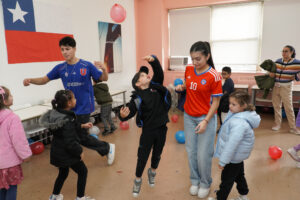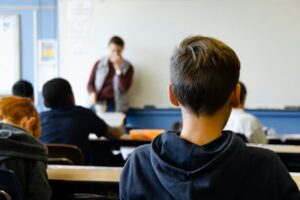
When we see our children lagging behind learning standards, we react by lecturing and trying to complete skills checklists. The problem is that kind of deficit orientation pushes us further behind. Instead, an innovative, growth mindset is demanded.
In project-based learning, we start with a meaningful problem we want to solve that requires us to acquire and utilize skills and concepts to complete tasks.
Project-based learning motivates us to think about what is possible, and it offers multiple ways for students to access learning. Under Covid, gaps have only widened and, while the impulse is to double down on drills, project-based learning does it far better.
***
We may be able to produce short–term results through drilling, but students can’t recall, apply, or transfer knowledge unless they have internalized it.
The best project–based learning activities require that students deeply understand specific concepts and skills.
In my neighbor’s math challenge class, he is learning fraction, perimeter, and area while creating a restaurant blueprint. This will lead to success in middle school (proportions) and beyond (algebra and the SATs).
The child enjoys making difficult decisions because others engage organically as he chooses materials and pricing. When teachers lack resources to establish project–based learning, scavenger hunts can offer a small–scale version.
***
The child can develop gross motor skills, such as when they locate objects in a virtual physical education class. Also, they can develop spatial relations, like my daughter does when she creates a map for my son to locate a gift. Finally, they can identify and analyze two- and three-dimensional objects, like my tutoring clients when they survey their environment.
While formal assessments provide data, we also gather data when students learn within a meaningful context. Students do need to see themselves growing their skill level and we need to be conscious of how they are learning, but joy and a greater purpose needs to be part of the process.
Quality project- and problem-based learning builds from what a student already understands and cares about. Students are more likely to be honest with themselves and others about where their strengths lie when they want to create something. Through experiential learning, true assessment occurs.
Kevin Miller is a full-time tutor based in Tarrytown. You can reach him at kevsmilltutoring.com or kevinsmiller7@gmail.com.







Hey Howie, I would love to talk! Email me at kevinsmiller7@gmail.com and we can nerd out on this wonderful topic.
Love to connect to discuss this topic in more depth. I’m a K12 education consultant and believe we need to find a way to add PBL to the curriculum asap. Hope to hear more on this topic.